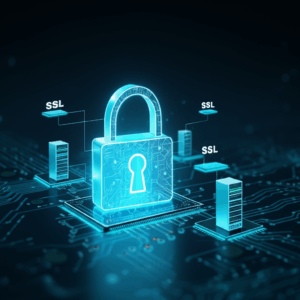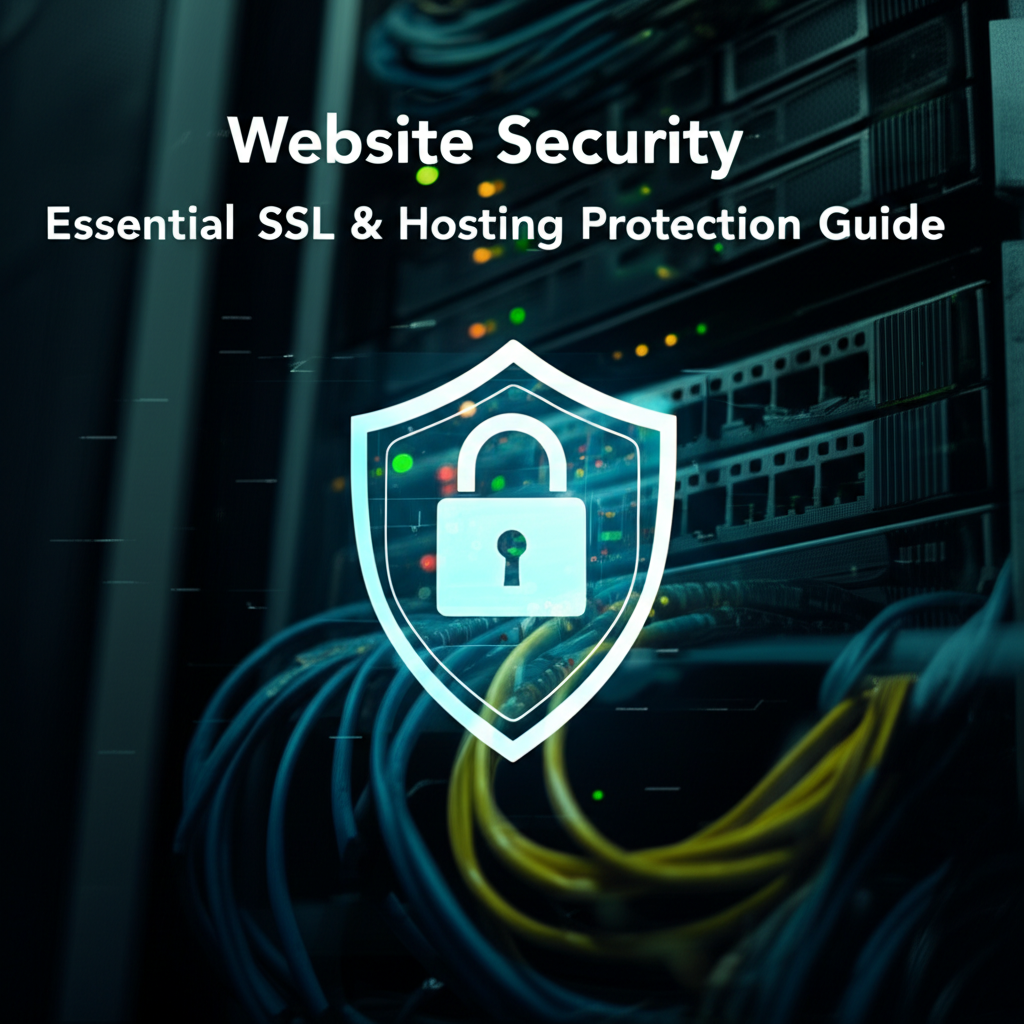- Understanding the Importance of Website Security
- SSL Certificates: The Foundation of Secure Websites
- Types of SSL Certificates
- Choosing the Right SSL Certificate for Your Website
- Hosting Protection: Shielding Your Website from External Threats
- Key Elements of Robust Hosting Protection
- Partnering with a Secure Hosting Provider
- Website Security Best Practices: Beyond SSL and Hosting
Website Security: Essential SSL & Hosting Protection Guide
Website security is paramount in today’s digital landscape. A secure website protects sensitive user data, builds trust with your audience, and safeguards your business reputation. Ignoring website security can lead to devastating consequences, including data breaches, financial losses, and irreparable damage to your brand. This comprehensive guide will delve into two crucial aspects of website security: SSL certificates and robust hosting protection.
Understanding the Importance of Website Security

In an increasingly interconnected world, cyber threats are constantly evolving. From sophisticated hacking attempts to malicious malware, websites face a barrage of potential attacks. A secure website acts as a fortress, protecting against these threats and ensuring the safety of both your business and your users. A strong security posture not only prevents data breaches but also enhances customer confidence, encourages conversions, and improves your overall online presence. Investing in robust website security is not just a technical necessity; it’s a strategic business decision.
SSL Certificates: The Foundation of Secure Websites
SSL certificates are the bedrock of website security. SSL stands for Secure Sockets Layer, a technology that establishes an encrypted connection between a web server and a browser. This encryption ensures that all data transmitted between the server and the browser remains confidential and protected from prying eyes. Visually, an SSL certificate is indicated by a padlock icon in the browser address bar and the change from “http” to “https” in the website URL. These visual cues signal to users that the website is secure and their information is protected.
Types of SSL Certificates
There are various types of SSL certificates available, each catering to different needs and levels of security:
Single Domain SSL Certificates: These certificates secure a single domain name (e.g., www.example.com).
Wildcard SSL Certificates: These certificates secure a single domain and all its subdomains (e.g., www.example.com, blog.example.com, shop.example.com).
Multi-Domain SSL Certificates (SAN): These certificates secure multiple distinct domain names under a single certificate (e.g., www.example.com, www.example.net, www.anotherdomain.com).
Extended Validation (EV) SSL Certificates: These certificates offer the highest level of validation and display the company name in the browser address bar, providing enhanced user trust.
Choosing the Right SSL Certificate for Your Website
Selecting the appropriate SSL certificate depends on several factors, including the type of website, the number of domains or subdomains needing protection, and the desired level of validation. For simple websites or blogs, a single domain SSL certificate may suffice. E-commerce websites handling sensitive customer data should opt for an EV SSL certificate to provide maximum assurance and build trust with their customers.
Hosting Protection: Shielding Your Website from External Threats
While SSL certificates secure the connection between the server and the browser, robust hosting protection safeguards the server itself from external threats. This includes measures to prevent malware infections, protect against DDoS attacks, and ensure server stability.
Key Elements of Robust Hosting Protection
A secure hosting environment incorporates several crucial elements:
Firewalls: Firewalls act as a barrier between your server and the outside world, filtering incoming and outgoing traffic and blocking malicious requests.
Malware Scanning and Removal: Regular malware scans detect and eliminate any malicious software that may have infected the server.
Intrusion Detection and Prevention Systems (IDS/IPS): IDS/IPS monitor network traffic for suspicious activity and automatically block or alert on potential threats.
DDoS Protection: DDoS (Distributed Denial of Service) attacks flood a server with traffic, rendering it inaccessible. Effective DDoS protection mitigates these attacks and ensures website availability.
Regular Backups: Routine backups of your website data ensure that you can quickly restore your website in the event of data loss or a security breach.
Partnering with a Secure Hosting Provider
Choosing a reputable hosting provider with robust security measures is critical. A secure hosting provider will proactively implement and manage the necessary security protocols to protect your website from evolving threats. Look for providers that offer features like firewalls, malware scanning, intrusion detection, DDoS protection, and regular backups.
Website Security Best Practices: Beyond SSL and Hosting
While SSL certificates and hosting protection form the core of website security, implementing additional best practices further strengthens your security posture:
Strong Passwords and Two-Factor Authentication: Enforce strong password policies and implement two-factor authentication for all user accounts.
Regular Software Updates: Keep your website software, including content management systems (CMS) and plugins, up-to-date to patch security vulnerabilities.
Secure Coding Practices: Employ secure coding practices to prevent vulnerabilities that hackers can exploit.
* Regular Security Audits: Conduct periodic security audits to identify potential weaknesses and proactively address them.
By implementing these comprehensive website security measures, you can effectively protect your website, your users’ data, and your business reputation. Investing in website security is an investment in the future of your online presence.











Leave a Reply